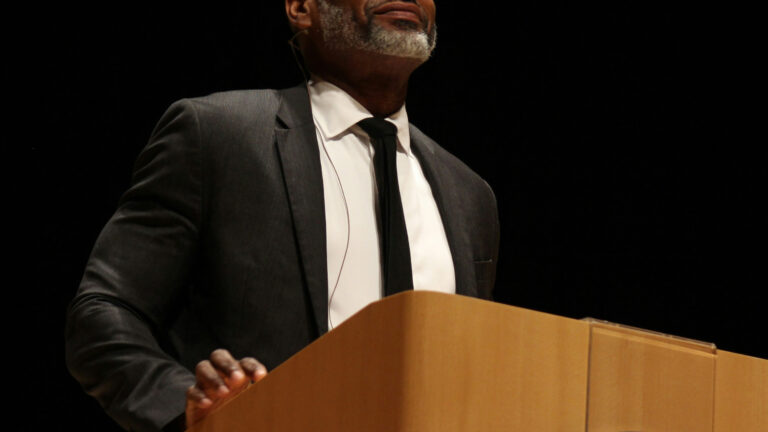We asked a group of student ministry workers in South Africa to share how they believe we can reach the next generation with the Gospel. All of them agreed that the first step is to tell a better story than the alternatives people are listening to. However, some typical obstacles tend to arise.
How to Reach the Next Generation with the Gospel (Part 2)
Listen to Sinethemba ‘Poacher’ Nliso and David Cloete as they reflect on what approaches they take to reach the next generation by telling a better story.
Obstacle #3: People Think they Know who Christ is… But they Don’t
Poacher: “I think when you look at the New Testament and Paul – at him – he has a passion of taking the Gospel to new places where Christ has not been heard. We live in a time that, especially in the South African context, Christ has been… people have been told about Christ. It’s a matter of what story have they heard about Christ. It’s like whenever there was a Micheal Jackson song and people misunderstood the lyrics and everyone would learn the wrong lyrics! And they would sing along! It feels like that sometimes with Christianity. That everyone has heard a wrong message about Jesus. You see what I am saying?
It’s like a song where people misunderstood the lyrics and everyone would learn the wrong lyrics. Then they would sing along! It feels like that sometimes with Christianity. That everyone has heard a wrong message about Jesus
Taking People to the Authentic Jesus
Many people have learnt a wrong message about Jesus. And in that people have said “I don’t want that – I am rejecting that.” So I feel there is need I think for Christians to take people to the authentic Jesus. To the authentic Christianity. When they ask “where will we find him?” direct people correctly and say “let’s look at the Bible.” Coz many times I go around the Student’s Union and I say “Oh. I’m a Christian worker. Do you want to come to Bible Study?” Or “we have this meeting…” They quickly dismiss and they are like “No! I want nothing to do with Christianity.” And then sometimes when I have time – and also they have time – I ask why?
I always invite people to a small group. I invite them. We open the Bible and we discover what is this together.
Engaging with the Bible
And things that we try to do to actually engage people about those issues that they have – because they have issues. They have heard Christianity. They have heard the Gospel but I sometimes find that they have misunderstood. And so its important to be big on Bible Studies. We are big on saying… I always invite people to a small group. I invite them. We open the Bible and we discover what is this together.
Making an Informed Decision
I feel like so many people reject Christianity based on what they have heard or based on how people who call themselves Christians have acted and responded. They then say “I want nothing to do with this.” So I say no – let’s look at what Jesus did. And the Apostles – what were they about? What did they say this message is about? Compare the data, and see it. Then when you are rejecting it you are not rejecting what people have made out it to be today. But actually you are rejecting what Jesus has said and the first witnesses and first followers of Christ. Who were saying about what this Gospel is.
Obstacle #4: Didn’t the Church Historically Exploit Africans?
David: “So for me, packaging all of those things, history is a massive thing in terms of where South Africa is and where many of us are in terms of understanding what God is, and the errors that we need to correct about Christianity. Sometimes we just think of, you know there’s a… there is some Christian false heretical group coming onto campus, and we are trying to debunk some of those theologies. And we are trying to do that. But there are so many things that we haven’t dealt with in terms of people’s understanding of Christianity. Understanding what the faith actually is about. Understand our history and understanding Church history.
Work with what the Bible says… Correcting errors, loving the Lord Jesus, driving people to the cross.
The Church Needs to Admit Mistakes
You can’t almost deal with history without looking at some form of the Church history. And I think one of the things is that we must not underplay the Church’s role in history and also the Church’s current role in shaping a lot of misconceptions about the faith. Shaping a lot of understanding of what Biblical Justice looks like. And then shaping our future. But it won’t happen unless we as the Church own up to some of that stuff. And say actually we got a lot of stuff wrong.
We are Sinners, But God is Righteous
But we also got a lot of stuff right. And we have a God who is in the right, although we are sinners. Although we have gotten a lot of things wrong. We can work with what the Bible says and see what the Gospel says about all these things. Correcting errors, loving the Lord Jesus, driving people to the cross. Let them see Him and not necessarily people. But then be drawn towards this man who gives himself for all peoples. He will call people to himself.
Let them see Him and not necessarily people. But then be drawn towards this man who gives himself for all peoples.
See Part 1 of “How to Reach the Next Generation” with Cameron Shabangu and Ryan van der Avoort here









